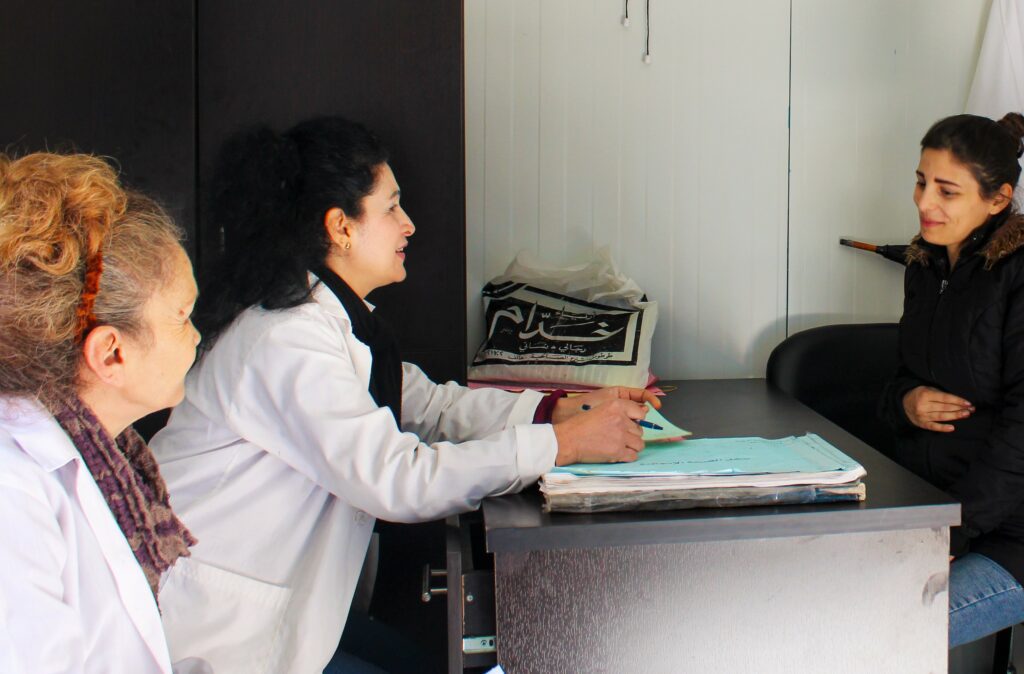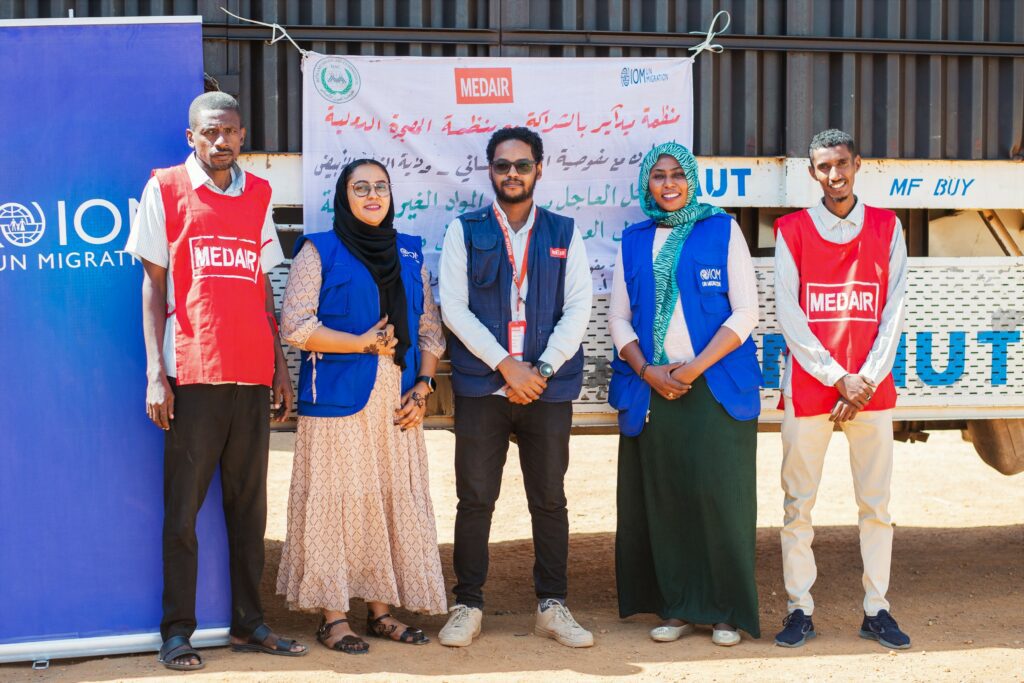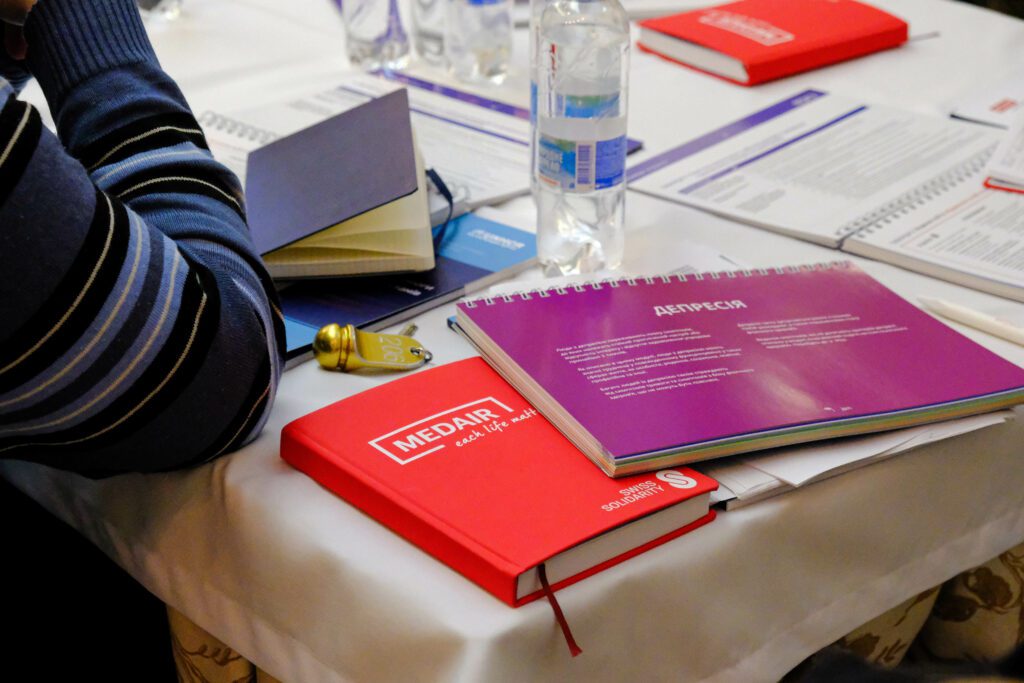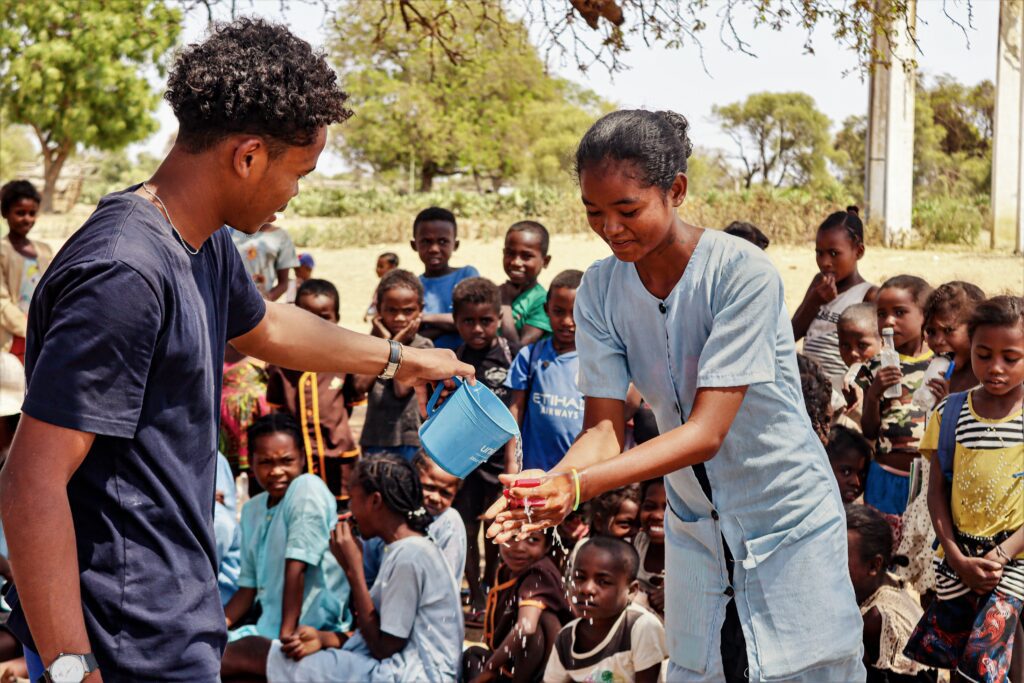“We came to Lebanon with zero. We had to restart life all over again. It took us so long to rebuild, however lately it feels like it’s all falling apart piece by piece,” says Fadia.
Our communications team in Lebanon joined Solange, Medair’s Community Midwife on a field trip in Qab Elias, in the Bekaa valley. Solange was there to conduct a follow-up session with Fadia, a vulnerable Syrian mother of eight. She had been consulting with her prior to her delivery of a newborn. Fadia and her family of eleven people live in a tarpaulin tent. It was a cold day in the Bekaa Valley and as we made our way into her home. This was poignant because six months ago she had given birth to a beautiful baby boy named Ahmad, who was sleeping in a crib hanging from the wall.
Fadia, 34 years old, escaped the crisis in Syria in 2013, coming to Lebanon on a long arduous journey, while pregnant. “We were trapped in Syria. My family and I couldn’t escape the crisis for a long time. As soon as we had the chance, some of my relatives and I left the town of Hallab. The journey was hard. It seemed like forever until we arrived here to Qab Elias. I was so scared for my baby,” said Fadia.
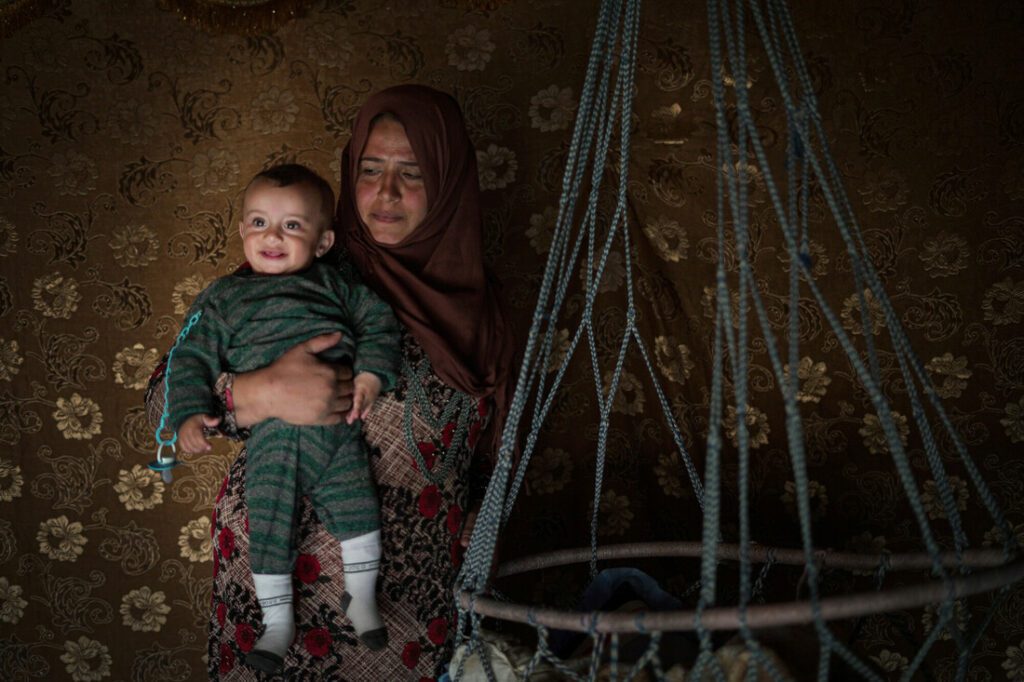
Fadia, a 34-year-old Syrian woman holds her newborn Ahmad while he smiles at the camera next to his hanging crib in their tented home, after finalizing her consultation with Solange, Medair’s Community Midwife in Qab Elias, the Bekaa Valley on the 24th of February 2022. ©Medair/Jaafar Hamdan
It wasn’t an easy relocation for her. With their little savings, Fadia and her family settled in the tarpaulin tent. However, time has not been kind to them. Currently, Fadia and her family continue to struggle in a crisis compounded by escalating inflation rates. The multi-layered crisis in Lebanon has significantly compromised maternal and child health, increasing the risk of acute and chronic malnutrition among the most vulnerable groups.
“We came to Lebanon with zero. We had to restart life all over again. It took us so long to rebuild, however lately it feels like it’s all falling apart piece by piece. My husband works on a day-to-day basis and is currently out of work. Opportunities for work are nowhere to be found and have reduced immensely since the start of the crisis. My older son Hamad has a leg impairment and requires diapers daily, because he cannot go to the toilet by himself. My newborn Ahmad also requires diapers, and baby formula as I am unable to breastfeed. Baby formula and a pack of diapers costs more than a week’s income. How can we continue affording this? I am embarrassed to say, but sometimes I rewash diapers, to reuse them, because I simply cannot afford to buy new ones,” says Fadia, overwhelmed. She continues saying, “No matter how bad it gets, I am hopeful things will get better. Services that are being provided to us help and make a difference when we have nothing else to hold on to. People like Solange are giving so much to our community, so at least we have this,” says Fadia emotionally. We left Fadia with our midwife to conduct the session in private.
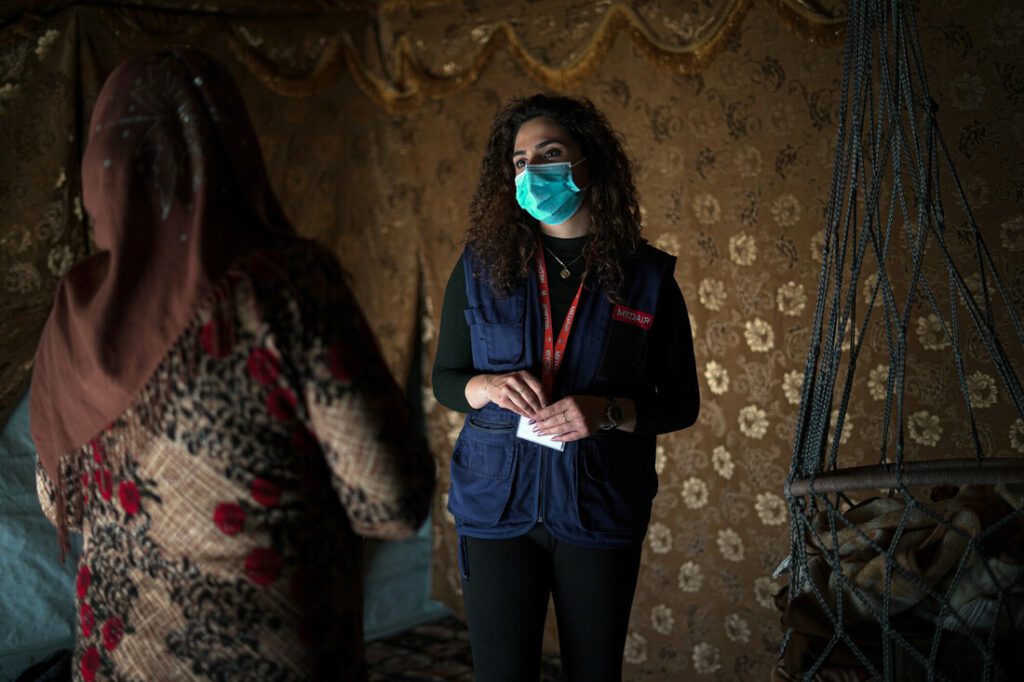
Solange, Medair’s community midwife (CMW) consults in a follow up visit with Fadia, 34-year-old Syrian women who gave birth to baby Ahmad, six months old, in her home in Qab Elias, the Bekaa Valley on the 24th of February 2022. ©Medair/Jaafar Hamdan
Solange supported Fadia through her pregnancy and delivery. Medair’s community midwives carry out physical examinations, checking the women’s blood pressure, weight, and listening to the baby’s heartbeat. This will identify any issues or concerns regarding the pregnancy. The community midwives also support mothers with self-care messages that address self-care and nutrition during pregnancy, birth preparedness, breastfeeding, and the importance of postnatal care. The midwives encourage pregnant women to go to the hospital to give birth, which ensures that a trained medical professional is present during delivery. Solange will also continue conducting postnatal visits with Fadia to check the well-being of the mother and baby and address any post-delivery problems. Solange will use these visits to encourage the mother to visit their local health clinic regularly and benefit from essential health services with their baby if they have any health concerns.
Medair services in The Bekaa Valley, Lebanon, are funded by Global Affairs Canada in partnership with Tearfund Canada, the Swiss Agency for Development and Cooperation (SDC) of the Federal Department of Foreign Affairs (FDFA) and with financial support of the European Union.
This content was produced with resources gathered by Medair field and headquarters staff. The views expressed herein are those solely of Medair and should not be taken, in any way, to reflect the official opinion of any other organisation.


